Property Owner Association Fees Not Automatically Conveyed in Foreclosure Sale
Diamondhead County Club and Property Owners Association, Inc. v. The Peoples Bank, Biloxi, Mississippi, 296 So.3d 651 (Miss. 2020)(en banc). Purcell, a developer, acquired property in Diamondhead, Mississippi, and began developing the property. In August 2004, Purcell borrowed money from Peoples Bank to purchase an aircraft. The loan was initially secured by the aircraft, but additional collateral was added to secure the loan including some of Purcell’s properties in Diamondhead. In September 2004, Purcell borrowed additional money from Peoples Bank which was secured by additional property in Diamondhead. All of the lots were subject to covenants requiring subsequent purchasers to pay Property Owner Association (POA) fees and assessments. In 1981, Purcell and the Diamondhead Country Club and Property Owner’s Association (DPOA) entered into a “Supplemental Agreement” which exempted Purcell from payment of POA fees and assessments while it owned the lots. The agreement also stated that the lots would be subject to POA fees and assessments upon conveyance to third parties. In April 2012, Purcell and Peoples Bank entered into a “Workout Agreement” in which Purcell agreed to provide additional collateral in the form of additional lots and to execute deeds of trust in favor of Peoples Bank. Purcell executed two deeds of trust in favor of Peoples Bank, one in 2008 and one in 2012. Purcell defaulted on its loans, and Peoples Bank purchased the encumbered lots at a foreclosure sale. The DPOA started billing Peoples Bank for the POA dues and fees associated with the lots. Peoples Bank filed suit against the DPOA seeking a declaration that it was exempt from the payment of fees and assessments. The DPOA counterclaimed for the unpaid fees and for a declaratory judgment that the lots were subject to assessment upon transfer of title to Peoples Bank. The chancery court entered an order granting summary judgment to Peoples Bank, finding that Purcell’s rights were assigned to Peoples Bank at foreclosure and that Peoples Bank was exempt from paying assessments on the property. On appeal, the Mississippi Supreme Court, in an en banc opinion written by Justice Ishee, reversed and remanded, finding that the POA exemptions were personal rights that had been conveyed in the 2008 deed of trust but not in the 2012 deed of trust. The Supreme Court stated that no Mississippi cases directly address whether an exemption from paying POA assessments is a right or interest to which a purchaser out of foreclosure is automatically entitled. A distinction exists between real property rights or interests that travel with title to the property, on the one hand, and personal rights that do not travel with the title but may be assigned, on the other hand. Justice Ishee wrote that “an exemption from POA assessments is a personal right that would not automatically pass with the title out of foreclosure. Rather it must be conveyed through the deed of trust.” The opinion then analyzed the contracts at issue, including the deeds of trust, to determine whether the exemption rights had been conveyed. The Supreme Court determined that Peoples Bank was entitled to the exemption from paying assessments on the lots connected with the 2008 deed of trust based on the language of the 2008 deed of trust which conveyed all personal property connected with the property. Because the 2012 deed of trust did not contain similar language, the Supreme Court found that Peoples Bank was not entitled to the exemption in connection with the lots associated with the 2012 deed of trust. Justice Ishee concluded “[w]e do not hold that personal contract rights, such as developer’s exemptions from POA assessments, are not assignable. Rather, these rights must actually be assigned. Lenders such as Peoples must ensure that they are properly collateralized.”
Note 1: The Mississippi Supreme Court relied on its decision in Henderson v. Copper Ridge Homes, LLC, 273 So.3d 750 (Miss. 2016), discussed in the June 2020 Real Property Section Newsletter. In Henderson, the Supreme Court concluded that claims for construction defects were personal rights and were not conveyed in a foreclosure sale. The Supreme Court has been on somewhat of a roll in recognizing personal rights that are not automatically conveyed through foreclosure.
Note 2: The Supreme Court noted that there was no evidence that Purcell intended to create a developer’s exemption that would run with the land. The Court cited the Supplemental Agreement which specifically stated that third parties would be subject to assessments and fees. Which raises the question – if Purcell and the DPOA had entered into an agreement that stated third parties would receive the exemption, would the bank have been entitled to such exemption even if not conveyed in the deed of trust? The case suggests that banks will be better protected by including the assignment in the deed of trust regardless.
Note 3: As in the Henderson v. Copper Ridge case, the court seems to suggest that all the lender needed to do was to add a few words to the description of property conveyed in the deed of trust to cover the borrower’s personal rights. But isn’t it more complicated than that? Since these are personal rights and not real property, doesn’t the Uniform Commercial Code govern attachment, perfection and enforcement of the lender’s security interest in personal rights? The UCC also brings with it non-waivable obligations of good faith and commercial reasonableness that are not otherwise present in a pure real estate transaction.
To learn more about the co-authors, Rod Clement and Lindy Brown, visit Rod’s member profile or firm profile or Lindy’s firm profile.

